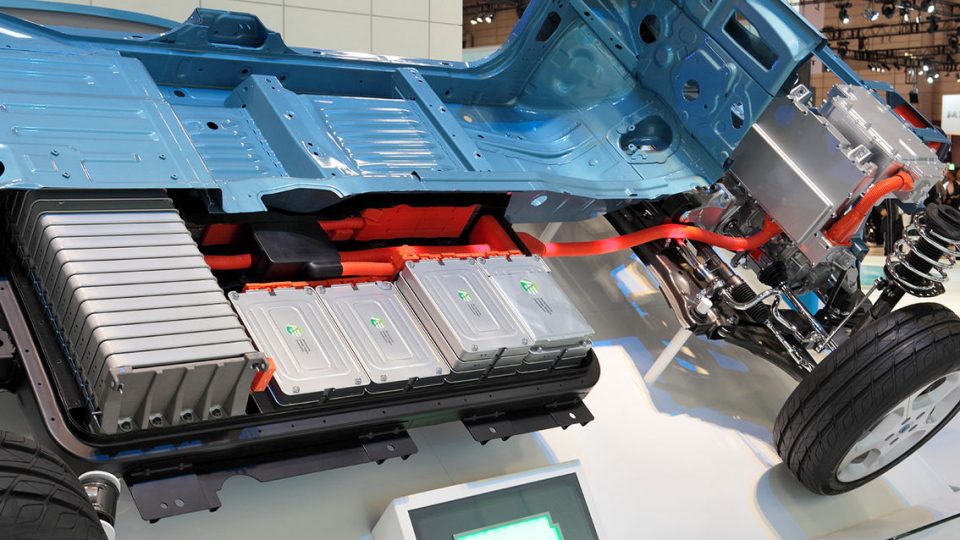Indonesia’s ambition to become a global hub for electric vehicle (EV) battery production has gained momentum in recent years. With abundant nickel reserves and strong government support, the country has attracted significant investment into battery manufacturing and related infrastructure. One major development is the Dragon electric vehicle battery project, which aims to strengthen Indonesia’s position in the global EV supply chain. However, experts and environmental groups have raised concerns about the potential economic, environmental, and social risks associated with the project. Understanding these risks is crucial as Indonesia pushes forward with its energy transition and industrial strategy.
Why Indonesia Is Investing In Electric Vehicle Battery Projects
The global shift toward electric mobility has created unprecedented demand for lithium-ion batteries, which power electric vehicles, energy storage systems, and other clean technologies. Indonesia, home to some of the world’s largest nickel reserves, views this as a strategic opportunity. By processing raw materials domestically and building a robust electric vehicle battery project pipeline, the country hopes to move up the value chain and capture more economic benefits from its mineral resources.
The Dragon electric vehicle battery project is among several initiatives designed to capitalize on this opportunity. It involves collaboration between Indonesian companies and international partners, with a focus on producing batteries for both domestic EV markets and export to global manufacturers. The project is expected to create jobs, attract foreign investment, and support Indonesia’s broader decarbonization goals.
However, building such large-scale infrastructure is not without challenges. Critics point to the environmental impact of mining and processing, financial risks linked to global market volatility, and questions about long-term sustainability.
Environmental Risks Of Electric Vehicle Battery Project Development
One of the most significant risks of the Dragon electric vehicle battery project is its potential environmental impact. Nickel mining and processing, while essential for battery production, can cause severe ecological damage if not managed properly. Issues such as deforestation, water contamination, and greenhouse gas emissions are among the key concerns raised by environmental groups.
The energy-intensive nature of battery production compounds the problem. If the electricity used for processing comes from coal-fired power plants, the carbon footprint of the resulting batteries may undermine Indonesia’s climate commitments. Furthermore, improper waste management in mining operations can lead to long-term environmental degradation and harm local communities that depend on natural resources for their livelihoods.
For Indonesia to maintain credibility in the global green economy, it must ensure that its electric vehicle battery projects meet strict environmental standards. This includes adopting cleaner technologies, enforcing environmental regulations, and involving local stakeholders in decision-making processes.
Financial And Market Risks Facing The Battery Industry
Beyond environmental considerations, the electric vehicle battery project also faces financial and market risks. The EV battery market is highly competitive, with major players in China, South Korea, and the United States already dominating production and technology. Entering this space requires substantial capital investment and advanced technical expertise.
Market volatility poses another challenge. Battery prices depend on raw material costs, which can fluctuate significantly. A drop in global nickel prices, for example, could reduce the profitability of battery production, while technological breakthroughs in alternative battery chemistries could disrupt market demand for nickel-based batteries.
There is also the risk of overcapacity. If too many electric vehicle battery projects are built without sufficient demand, it could lead to financial losses and stranded assets. Indonesia must carefully balance its industrial ambitions with realistic assessments of global market trends and domestic EV adoption rates.
Social And Community Concerns
The Dragon electric vehicle battery project has implications beyond the economy and environment; it also affects local communities. Large-scale mining and industrial projects often lead to land acquisition, displacement, and changes in traditional livelihoods. If not handled sensitively, these issues can spark social conflicts and erode public trust in industrial development.
Transparency and community engagement are critical to managing these risks. Ensuring that local residents have a voice in project planning and benefit from job creation and infrastructure improvements can help mitigate potential conflicts. Companies involved in the electric vehicle battery project should also invest in social programs, such as education and healthcare, to improve overall community well-being.
Opportunities For Sustainable Development
Despite these challenges, the Dragon electric vehicle battery project offers significant opportunities if managed responsibly. By adopting best practices and aligning with global sustainability standards, Indonesia can position itself as a leader in ethical and environmentally friendly battery production.
Several steps can support this transition:
- Clean Energy Integration: Ensuring that battery manufacturing facilities are powered by renewable energy sources, such as solar or hydro, will reduce carbon emissions and improve the overall sustainability profile of Indonesian batteries.
- Technological Innovation: Investing in advanced recycling technologies can reduce reliance on raw material extraction and minimize environmental damage. Battery recycling also creates new economic opportunities and aligns with circular economy principles.
- Strong Regulatory Framework: Enforcing strict environmental and labor standards ensures that projects are developed responsibly and sustainably.
- Global Partnerships: Collaborating with international technology firms can bring expertise and resources to enhance efficiency and competitiveness while meeting global compliance requirements.
Conclusion
Indonesia’s Dragon electric vehicle battery project highlights both the opportunities and risks of rapid industrialization in the clean energy sector. While the project has the potential to position Indonesia as a key player in the global EV supply chain, it also raises concerns related to environmental sustainability, financial viability, and social impact.
Addressing these challenges requires a balanced approach that combines economic ambition with responsible environmental stewardship and social inclusivity. By adopting best practices, engaging local communities, and aligning with global sustainability standards, Indonesia can build a robust and ethical electric vehicle battery industry that supports long-term national goals and contributes to the global transition toward clean energy.
Read More






 Thursday, 12-02-26
Thursday, 12-02-26







